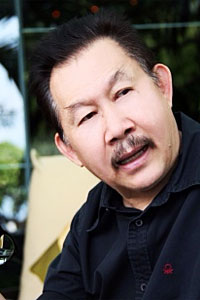Despite the hard sell, the heartwarming promise delivered in a song <i>To Return Happiness To Thailand (In Not So Long)</i> played almost hourly on our radio and television networks, whose lyrics are credited to Prime Minister Prayut Chan-o-cha, a lot of us who have been forced to be in a spectator role are actually subjected to a disturbingly delayed pleasure.
In view of the historic, multi-dimensional complexity of the issues facing our polity, this caretaker leadership should have been much better off attempting to pick the brains of our best and brightest minds, that is the scholars and technocrats who have made a profession out of reading, thinking, writing, researching and consulting based in all the universities and research institutes dealing with Thai studies inside and outside the country.
Sadly, the contrary seems to be the case. Recently, for example, a number of our university professors and public intellectuals have reason to be frustrated owing to uninvited visits and unkind pressure from men in uniform. Unlike the professional demagogues who simply act as hired hands to do the leg work for the powerful, often shady dark forces, these well-educated people are mostly innocent professionals who are just trying to do their jobs. Aside from other assignments, writing and speaking about their observations on the real world are a part of their responsibility, particularly when the world outside the ivory tower appears to be moving in questionable directions.
When reform is the order of the day, such a rift is really too bad for this is precisely the time when such thoughtful people might be asked to open their treasure boxes which might hold intrinsic, heuristic value to enlighten those in power to resolve the thorny issues to move our polity forward.
Note that during the years when Thailand was painfully intoxicated by countless verbal and physical confrontations, characterised by both deliberately-planned and random violence, our professional intelligentsia was largely and suspiciously quiet, possibly for fear of misinterpretation and mistreatment by the competing colour-coded groups. Now, the feeling of distrust seems to have shifted into yet another gear.
This implies that modern Thailand has been essentially deprived of the necessary and continuous research contributions and reflections from our professional intelligentsia.
No doubt, a lot of good research notes and works to look for new ways and means to save the steadily sinking ship of state are probably quietly being conducted everywhere. But there is no question that a disturbing accumulation of research questions are piling up for clearance.
For example, key themes on the origins and development of such a conflict that need treatment are huge, including the pros and cons on the role and impact of individual constitutions, governments, political parties, independent organisations, colour-coded groups, media and propaganda, peaceful struggles and violent campaigns, policy corruption and populist policies, international pressure for human rights, good governance and democracy, variety of national authoritarianisms, the plight of the peasants, farmers, and middle classes amid a rapid jump in income disparity, transnational migration on the local urban labour class, economic cost and benefit analysis of political stagnation, and others.
Owing to the multiplicity and complexity of issues swept under the carpet, there is a need for serious, large-scale contributions from all those working from the vantage point of diverse theoretical persuasions before we would be able to properly usher our country away from the path of self-destruction and toward conscious self-renovation.
While we Thais have been known for our skills in the art of muddling through, this is probably not good enough for this day and age. In the past 10 years, the structures and issues of our society have been changed so fundamentally and deeply that it is no longer adequate to rely on our blind faith in our traditional invincibility. The world has also been undergoing a series of structural changes at a pace unseen in earlier epochs.
A far-sighted political and academic leadership must do everything in its power to encourage and support our best and brightest to play a proactive role in guiding our society toward a new era that is already on our threshold.
To move from what looks like a dead-end toward a future of hope, we must first get the assistance of our best scholars and technocrats to fully grasp the origins, development, and nature of such a long, painful confrontation that has broken not only our hearts and minds but also the seams of our social fabric. Only by intellectually transcending this most troubled period of our history can we start to think of a new era of genuine peace and prosperity.
This article is dedicated to the memory of the late Professor Benedict Richard O'Gorman Anderson, whose creative power of imagination revolutionised the genesis of Indonesian and Thai studies.
Boonrak Boonyaketmala is a former professor and dean at Thammasat University, and founding director of Programme on Transnational Relations and Development Options at the Thailand Research Fund. Comments are welcome at responses1234@yahoo.com
